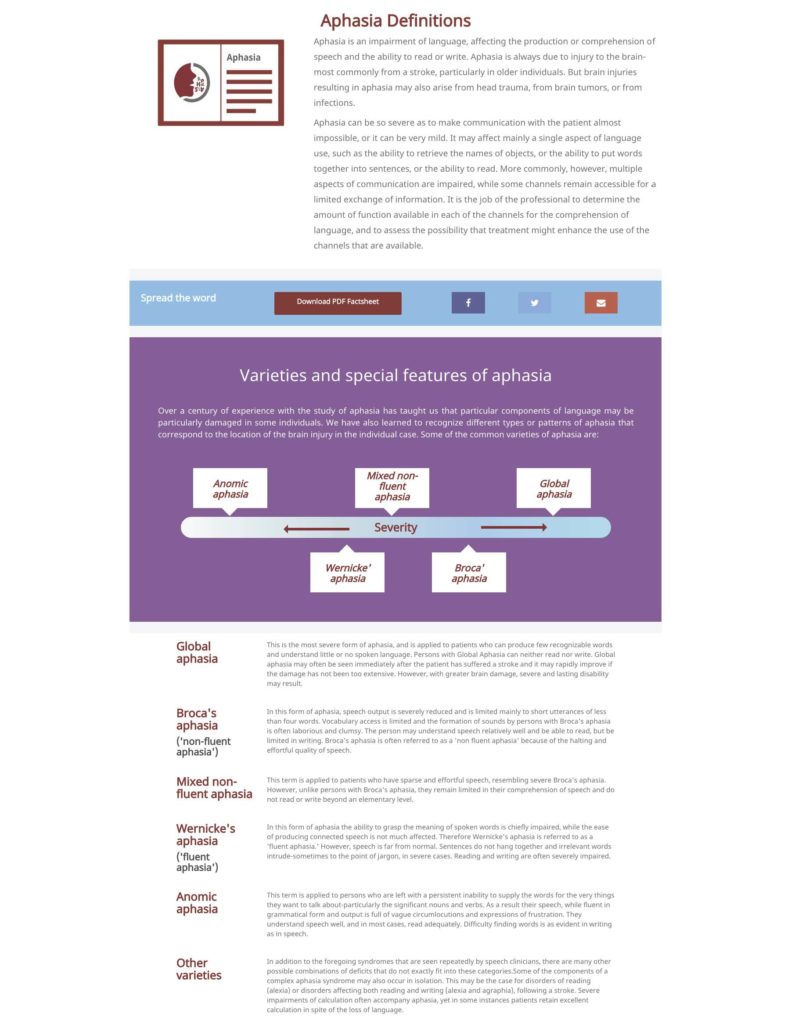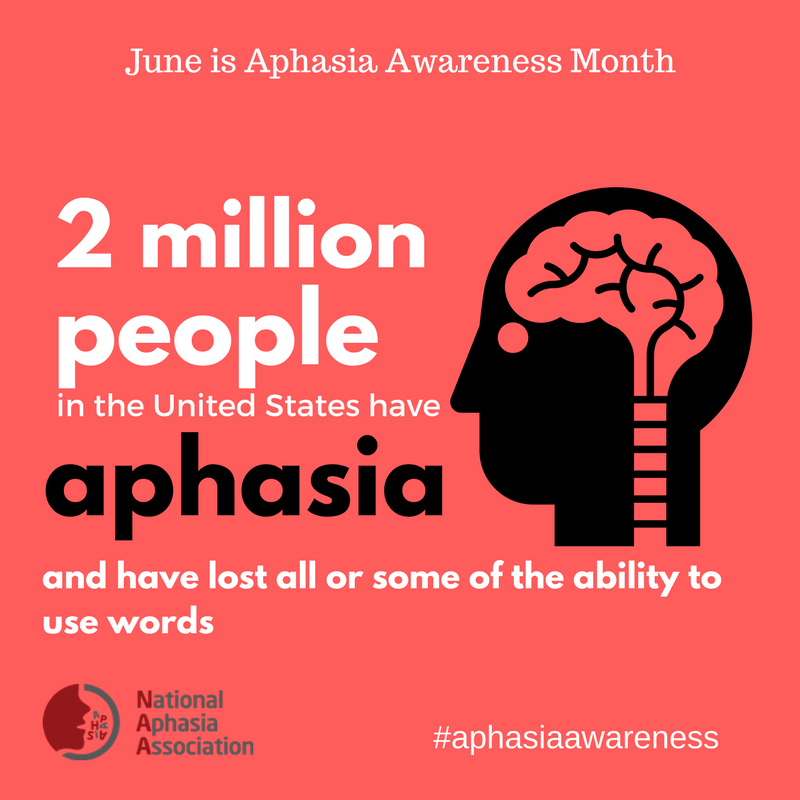Did you know June is National Aphasia Awareness Month? Aphasia is a language disorder that makes it difficult for people to communicate. For example, people sometimes develop aphasia after a stroke. The National Aphasia Association has a helpful video that explains aphasia and what you can do to help those living with it.
People with aphasia are still just as smart as they were before the event that caused the disorder. They just report having trouble finding or getting the right words out, understanding what you’re trying to say, and sometimes even reading and writing.
The disorder is obviously incredibly frustrating and confusing. Depending on the type of aphasia, the disorder can be severe. The information below shows the varieties of aphasia and their severity. [2]

How can you help someone with aphasia?
Both the person with aphasia and their loved ones might need help navigating this new disorder. Work with your doctor and get support from a counselor or speech pathologist. The National Stroke Association [3] also recommends the points below:
- Assume the person with aphasia can hear you. “Check understanding with yes/no questions.”
- Come up with a regular routine each day that includes time to “practice skills” and rest.
- Reduce the noise to make it easier for you both to communicate with one another.
- “Remember to treat the stroke survivor as an adult and let him or her share in decision-making. No one likes to be ignored.”
- Recognize and respect the frustration and depression that can occur because of the disorder.
You can also help us at Horizon Family Medical Group to spread the word on social media. The National Aphasia Association created the image and encourages the hashtag below. Please take a moment and retweet or share on your social media channels.

Resources:
- https://www.aphasia.org/aphasia-definitions/
- https://www.aphasia.org/wp-content/uploads/2014/12/Aphasia-Definitions.pdf
- https://www.strokeassociation.org/-/media/stroke-files/stroke-resource-center/recovery/patient-focused/lta-stroke-and-aphasia-2015-ucm_309703.pdf

